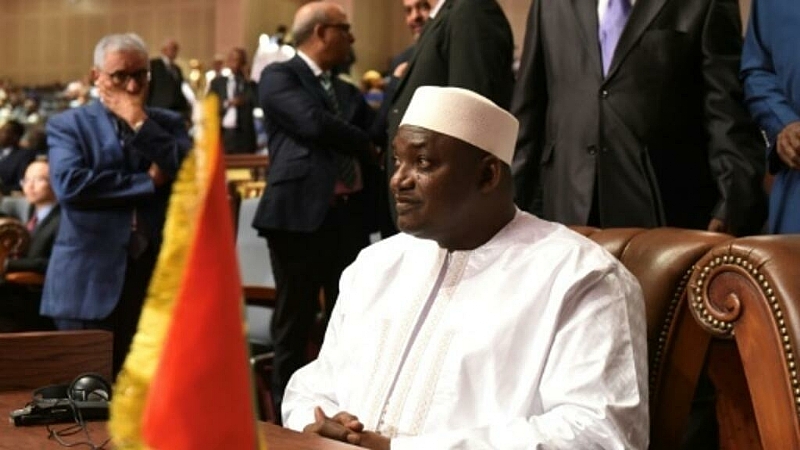
[ad_1]
The Gambia has formally blocked return flights of migrants expelled from the European Union. Banjul maintains that the country cannot reinstate them.
Being the smallest country in mainland Africa, The Gambia has a long migratory tradition.
An estimated 118,000 Gambians live abroad, according to the International Organization for Migration, who send home remittances representing more than 20% of the country’s GDP.
However, this week’s announcement that the government aims to block return migrant flights comes ahead of a presidential election in December and some have interpreted the move as an attempt to build electoral support ahead of the poll.
Banjul’s administration has said it will block all return flights of migrants from the EU, just as Germany prepares to deport a number of Gambians.
Gambian Foreign Ministry spokesman Saikou Ceesay said the government enacted the policy last June, explaining that large numbers of returning migrants would cause “social upheaval”.
He maintains: “We are trying to consolidate the peace, stability and democracy that we have in this country.
The Gambia was ruled by the violent dictator Yahya Jammeh for 22 years, until he was ousted from power in 2017 after losing a presidential election to Adama Barrow.
The first Gambian presidential election of the post-Jammeh era is due to be held on December 4.
EU frustration with Gambia
Meanwhile, a European diplomat, who declined to be named, described The Gambia’s decision to block migrant returns as “a political issue” motivated by the upcoming elections.
European governments have already complained that The Gambia has never fully cooperated on returns.
The West African country signed a non-binding return agreement with the EU in 2018 that was “never fully respected”.
The European Council is due to consider a proposal that would tighten access to EU visas for Gambians, for example, due to “the country’s non-cooperation on readmission”.
Source link